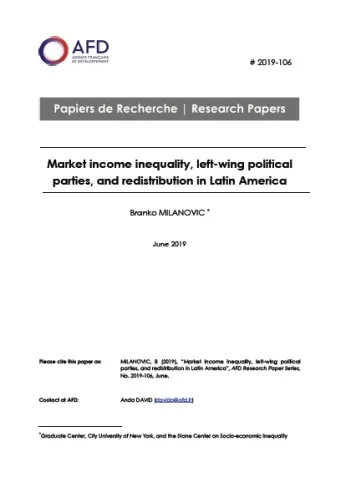Share the page
Market income inequality, left-wing political parties, and redistribution in Latin America
Published on

The paper uses household-level data from more than 200 household income surveys from 20 Latin American and Caribbean countries to explore the (revised) median voter hypothesis and the political determinants of the recent decrease of Latin American inequality. We find that more unequal market-income countries, and greater market-income inequality within a given country, are associated with greater pro-poor redistribution, although such redistribution is rather weak in Latin America compared to the economically advanced countries. We also find that more pro-left political orientation of national legislatures has been associated with greater redistribution. We thus argue that there are political roots to the recent decrease of inequality in Latin America.
Useful Information
-
Authors
-
Branko MILANOVIC
-
Coordinators
-
Edition
-
106
-
Number of pages
-
20
-
ISSN
-
2492 - 2846
-
Collection
-
Research Papers
